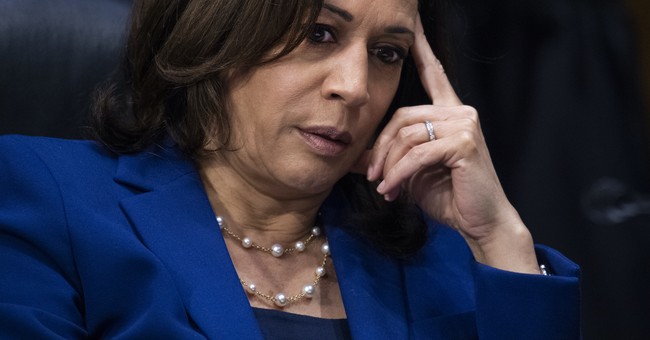
Hat tip to John Kerry who, in all his Yale brilliance, crafted for us a political line that is likely to never die.
This is not a comprehensive review of Kamala Harris’ time as DA in San Francisco, or Attorney General for California, and her conduct in those offices with regard to the death penalty. Those stories will come in the weeks ahead.
This is a simpler story that provides some data along the parallel tracks of the timeline if you trace the history of litigation involving the California death penalty statute and Kamala Harris’ time in those two offices.
Books can be written — and some have been — on the tortured history of death penalty litigation up and down the State of California in the courtrooms of various federal judges. The appeals process of individual criminal cases where the death penalty was imposed is normally handled by the District Attorney of the county where the case was brought. But when the court fight turns to federal constitutional challenges to the death sentence imposed, or the manner in which California implements the death penalty, the Attorney General for California becomes the advocate defending the conviction and sentence.
From 2010 to 2016, Kamala Harris led the office responsible for defending the imposition of death sentences in California. So let’s look at what she inherited in that regard prior to taking a closer look at her actions in that role.
Anecdotally, the late Ninth Circuit Court of Appeals Judge Steven Reinhardt was a one-man roadblock for the imposition of death sentences in California, voting to reverse such sentences in every case to which he was assigned as a member of the panel. We now know that it was likely not a coincidence that he seemed to be assigned to an inordinate number of such cases given he was only one judge out of around 20 on the Ninth Circuit — but that’s a story for another day.
So in some respects, the fact that California currently has 763 men and women on death row, yet has carried out only 13 executions since 1976, is not the fault of Kamala Harris or any other California Attorney General, but rather is the result of liberal federal judges in California who have gummed up the judicial process in those cases for decades.
Almost no individual federal judge was more accomplished in that regard that District Court Judge Jeremy Fogel of the Northern District of California, sitting in the San Jose Division. In 2006, Judge Fogel took control of the “mechanism” for carrying out the death penalty in California with regard to “lethal injection”, and pretty much imposed an enduring moratorium. In case after case challenging the mechanics of the California death penalty protocol, Judge Fogel always found it to come up wanting.
While the two issues will never be linked definitively, it seems hardly coincidental that in 2011, Chief Justice John Roberts of the Supreme Court assigned Judge Fogel to the Federal Judicial Center, a research arm of the US Court system, taking him out of the district court in San Jose, and reassigning the death penalty cases to other judges. Judge Fogel took senior status upon completing his assignment to the FJC, and retired from the bench in 2018.
For the death penalty to come into play in California, a district attorney must file allegations in the case of the existence of “special circumstances” as defined by the California death penalty statute. If a defendant is convicted of murder, a second proceeding involving the same jury is then conducted where the allegations of “special circumstances” must be determined by the jury. Based on that determination, the jury can recommend that the death penalty be imposed, or that the defendant be sentenced to life imprisonment. But that is only a recommendation, and the trial court judge must concur in the jury’s finding in order to impose the death penalty. The judge cannot impose the death penalty without the recommendation of the jury. As noted above, this has happened 763 times in California cases where the death penalty has yet to be carried out.
Kamala Harris took the oath of office as California Attorney General on January 3, 2011. Judge Fogel was moved to the FJC in July 2011.
In July 2014, District Court Judge Corman Carney in Los Angeles declared the California death penalty to be unconstitutional in a case defended by the Attorney General’s Office led by Kamala Harris.
The November 2015 Ninth Circuit Court of Appeals reversed that decision in November 2015, with the California Attorney General and defending the death penalty statute, and winning the reversal.
I’m going to dive into the details of these various litigation matters in the future, and the position taken by Harris as Attorney General.
But there is no question that she “advocated” for the use of the death penalty during her time as Attorney General. There is also no question that she has run away from that record as her national profile rose once she became a United States Senator. Peter Bienart made a particularly awful effort to defend her hypocrisy in an article a few days ago — before she was named as Biden’s VP — by claiming “Yeah, she changed her stance on police reform because of politics — so what?” Bienart was responding to criticism of Harris being a late convert to the cause of police reform in this NYT article.
It’s a given that Harris’ defenders are going to attack Republicans and conservatives who point out her reversals on these issues as being hypocrites themselves, claiming that we must now be opponents of the death penalty by virtue of criticizing her prior support. Such arguments are really industrial-strength stupid.
The criticism of Harris over her “conversion” to opposing the death penalty and favoring the new “police reform” agenda championed by the likes of Antifa and BLM is that her prior positions on the other side of both those issues were not a defense of them on the merits, but were really nothing more than a defense of what she saw as her political prospects at that moment in time.
When she narrowly won the Attorney General position in 2010, getting only 46% of the state-wide vote, an effective line of attack used against her involved the fact that she had refused to seek the death penalty for a gang member who killed a San Francisco police officer while she was the DA in San Francisco. Her refusal didn’t come after a detailed investigation, based on which she determined seeking the death penalty was inappropriate. As told in the linked article, the murder happened on a weekend and Harris ruled out seeking the death penalty on the Tuesday following.
She learned from that close call in her first partisan electoral contest that as Attorney General she had to defend the use of the death penalty for her own political survival. When her political prospects required that she oppose the death penalty, she did that too. For her, it was never about a belief on the issue, only a question of the appropriate timing.
Much more to come in the days and weeks ahead on the legal history of Kamala Harris in California. Make no mistake, this is an election battle between Donald Trump and Kamala Harris – Joe Biden is just along for the ride until he can be let off of the first available truck stop with hot coffee and some muffins to tide him over until the assisted living facility can pick him up.
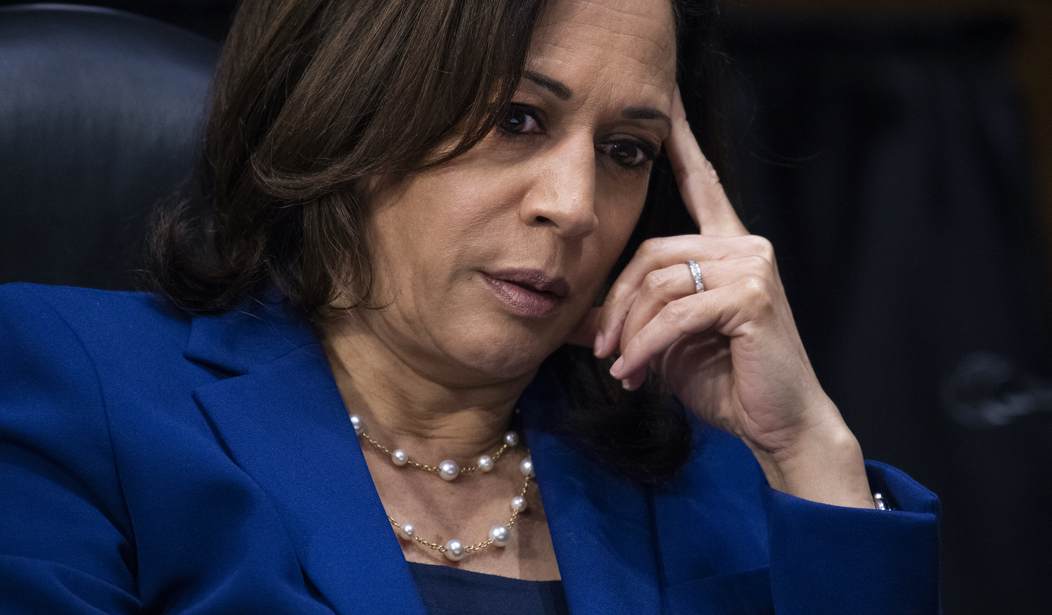

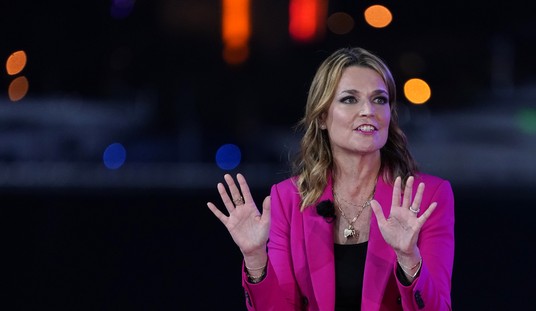

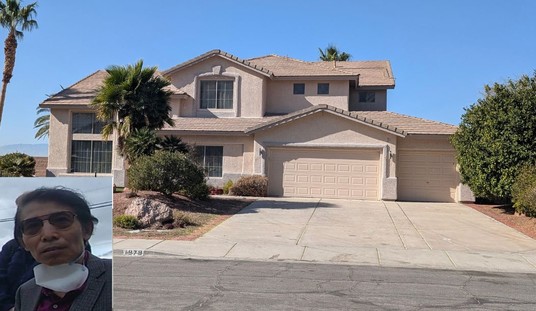

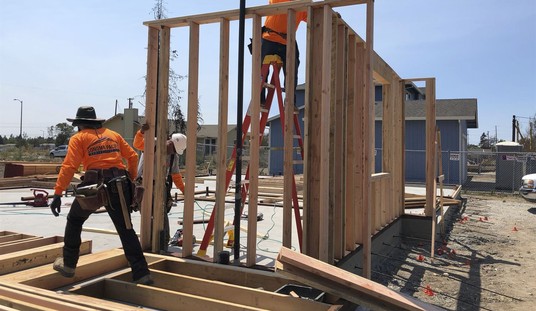





Join the conversation as a VIP Member